A Gringo Manual
on How to Handle
Mexicans
Second Edition, Revised and Expanded
Jos Angel Gutirrez

This volume is made possible through grants from the National Endowment for the Arts (a federal agency), Andrew W. Mellon Foundation, the Lila Wallace-Readers Digest Fund and the City of Houston through The Cultural Arts Council of Houston, Harris County.
Recovering the past, creating the future
Arte Pblico Press
University of Houston
Houston, Texas 77204-2174
Cover design by James Brisson
Gutirrez, Jos Angel.
A Gringo Manual on How to Handle Mexicans / Jos Angel Gutirrez.2nd ed. rev. and expanded
p. cm.
ISBN 1-55885-326-X (pbk. : alk. paper)
1. Mexican AmericansCivil rightsHandbooks, manuals, etc. 2. Civil rights movementsUnited StatesHandbooks, manuals, etc. 3. Mexican AmericansCivil rightsAnecdotes. 4. Civil rights movementsUnited StatesAnecdotes. 5. United StatesEthnic relationsHandbooks, manuals, etc. 6. United StatesEthnic relationsAnecdotes. I. Title. II. Series.
E184.M5 G87 2001
323.116872073dc21 | 2001022421
CIP |
 The paper used in this publication meets the requirements of the American National Standard for Information SciencesPermanence of Paper for Printed Library Materials, ANSI Z39.48-1984.
The paper used in this publication meets the requirements of the American National Standard for Information SciencesPermanence of Paper for Printed Library Materials, ANSI Z39.48-1984.
2001 by Jos Angel Gutirrez
Printed in the United States of America
1 2 3 4 5 6 7 8 9 0 10 9 8 7 6 5 4 3 2 1
To my mother, Concepcin Fuentes Gutirrez.
I know you would have enjoyed this version and probably
stashed a few hundred away for posterity. I miss you
and thank you for making me the man that I am.
Table of Contents
Foreword
The 1960s and 1970s spawned some of the most significant Hispanic civil rights and social justice activities in U.S. history. During these years, Americans gained unprecedented exposure to the plight of Spanish-speaking people in the United States, through the organizing activities of Hispanic workers, students, artists, and community activists. Five leading figures emerged to embody the particular struggles for Mexican Americans. Their works informed the development of a national Chicano civil rights movement.
Csar Chvez, head of the United Far Workers Union, became the most well known of these leaders nationally. Bert Corona, a Los Angeles-based labor leader and immigrant advocate, played a key role in expanding the base and assertiveness of Hispanic urban advocacy in California. Reis Lpez Tijerina, a New Mexico-based Pentecostal preacher, mobilized aggrieved Mexican-American families around increasingly militant efforts to reclaim land rights guaranteed by the 1848 Treaty of Guadalupe Hidalgo between the United States and Mexico, which in many cases had been blatantly violated. Rodolfo Corky Gonzales, a Denver-based community organizer, contributed a new conceptual framework to the Mexican-American struggle for justice, invoking the notion of a lost homelandAztlnin powerful public addresses and writings that especially galvanized young activists of the day.
The last of these leadings figures was Jos Angel Gutirrez. Gutirrez, a young community and political organizer from South Texas, spearheaded a new vehicle to alter radically Mexican-American political participation: the Raza Unida (United Peoples) Party. During the early 1970s, the Raza Unida Party succeeded against overwhelming odds to win key elected offices in and the South, thus helping to change the face of U.S. Hispanic politics in important ways.
Gutirrezs political activities produced a substantial body of FBI surveillance and disapproving establishment scrutiny. The political movement that he helped to forge ultimately waned, as so many modern American third-party efforts have. Gutirrez persevered in the aftermath of the Raza Unida Partys demise to pursue a career as a lawyer and progressive scholar. He remained active in community affairs and organizing activities, developing a widely read underground book called A Gringo Manual on How to Handle Mexicans, which he self-published in the 70s. The volume presented here represents substantial efforts by Gutirrez to advance the quality, currency, and relevance of the manual (through constant editing and updating over the years), while simultaneously preserving the spirit and feel of the original.
We are pleased to present this key product of the Chicano Movement years as a leading release in Arte Pblico Presss Hispanic Civil Rights Book Series. The series seeks to increase public knowledge and appreciation concerning Hispanic contributions to U.S. civil rights advancement in the post-World War II era. With generous support from the Charles Stewart Mott Foundation, the Rockefeller Foundation, and the Ewing Marion Kauffman Foundation, the series will support the public dissemination and discussion of approximately fifteen new and revised works covering the key organizations and leaders that have shaped contemporary gains by Hispanics in social justice. By pointing out the many public achievements of these groups and individuals, even in the face of substantial mainstream resistance, the series aims to expand national comprehension of the strength and vitality of U.S. democratic institutions, and of the promise of our nations dramatically increasing cultural diversity.
Jos Angel Gutirrezs A Gringo Manual presents lessons, mostly quite humorous but in every case bitingly insightful, about the many daily injustices Mexican Americans and Mexican people encounter at the hands of white, North American gringos across the United States. Based on Gutirrezs own personal experiences and insights, as well as those of other aggrieved people of Mexican origin, the entries in A Gringo Manual provide first-voice testimony to the continuing legacy of institutionalized racism in America. They underscore the conditions, assumptions, and biases that produced militancy in so many, especially younger Mexican Americans of the civil rights era.
As Hispanic Americans emerge to become the nations most populous minority group at the outset of the 21st century, many of the injustices chronicled in Gutirrezs A Gringo Manual sadly are on the rise. Mexican origin and other Hispanic Americans suffer continuing indignities at the hands of politicians, law enforcement officials, employers, universities, the media, philanthropic grant-making organizations, and other leading institutions. Hispanics and especially newer immigrants are also increasingly subject to the nations growing incidence of racially motivated hate crimes. Gutirrezs entries in A Gringo Manual bring forward in full-blown color the tragedy and the pettiness of contemporary anti-Latino racism, xenophobia, and institutional bias. They amplify the absurdity of still too prevalent mainstream perceptions of Mexican and other Latino people in the U.S. as lazy foreigners who are somehow undeserving of equal status in American life.
Quite importantly, however, Gutirrezs introductory remarks in this important new volume make it clear that to be a gringo is not a condition of racial or ethnic assignment. Instead, he observes, to be gringo speaks to a state of mindthat is, a mind to be anti-Hispanic. Hence, in Gutirrezs comprehension of the term, Mexican Americans and other Hispanics can also be gringosand indeed many regrettably are. Conversely, not all European (or other non-Hispanic) Americans are gringos.


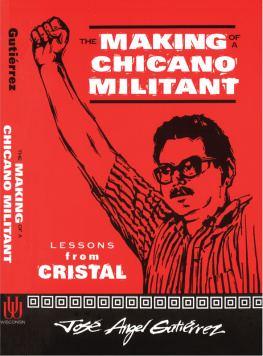
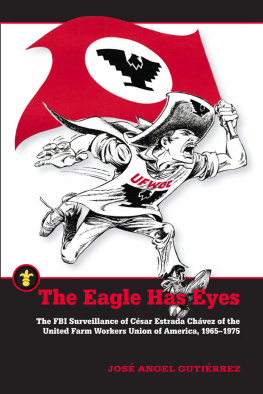
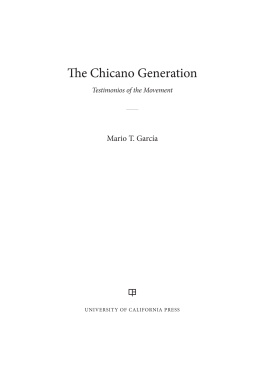
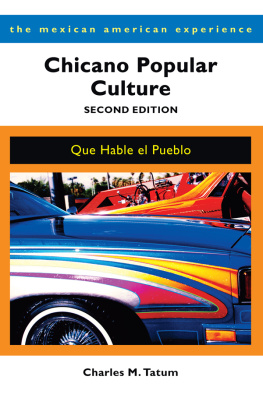
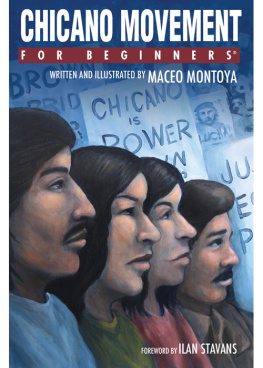
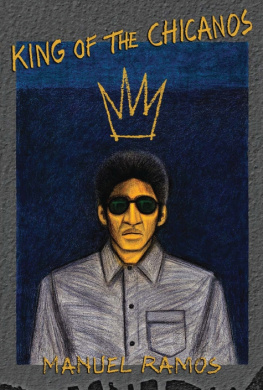

 The paper used in this publication meets the requirements of the American National Standard for Information SciencesPermanence of Paper for Printed Library Materials, ANSI Z39.48-1984.
The paper used in this publication meets the requirements of the American National Standard for Information SciencesPermanence of Paper for Printed Library Materials, ANSI Z39.48-1984.